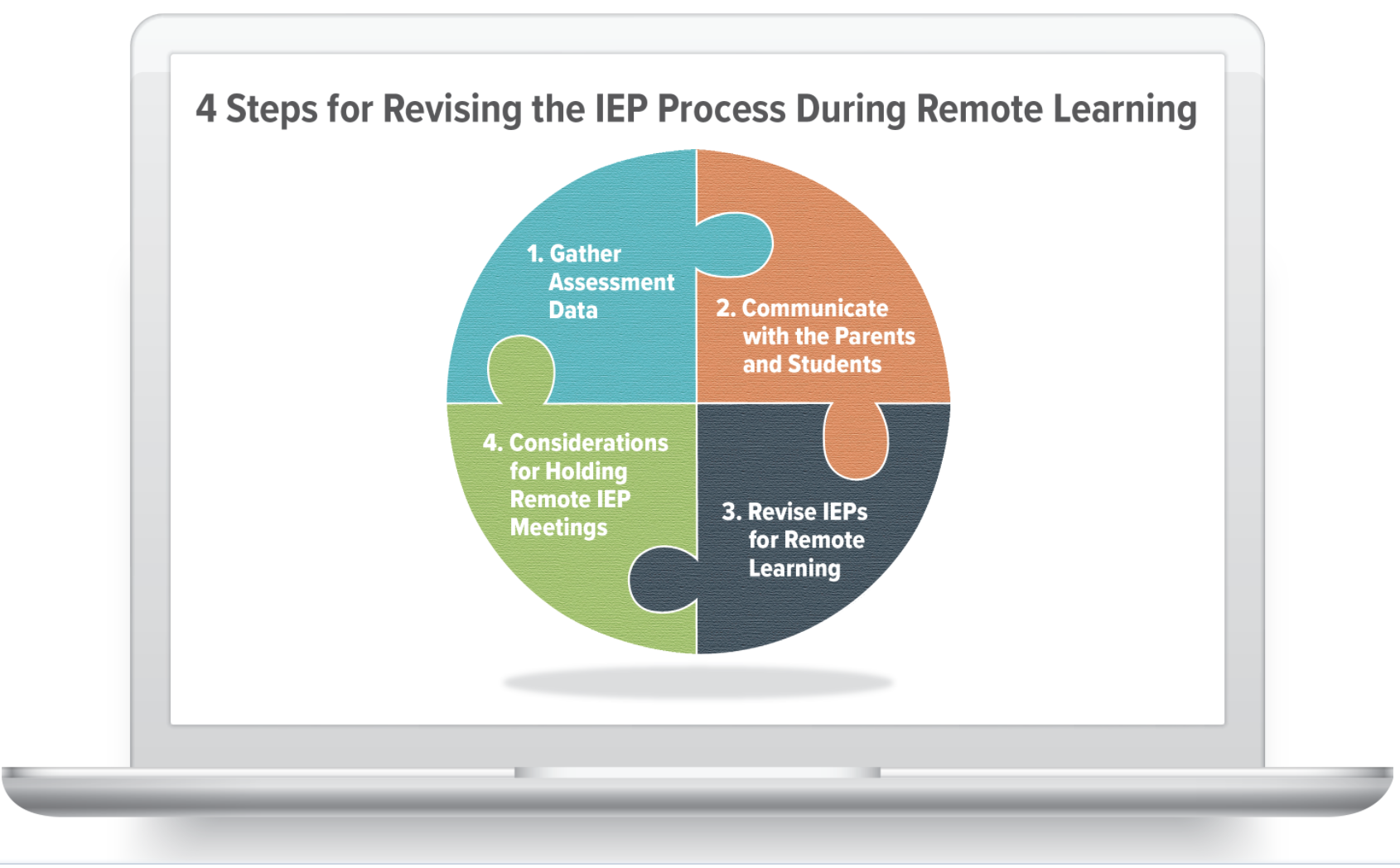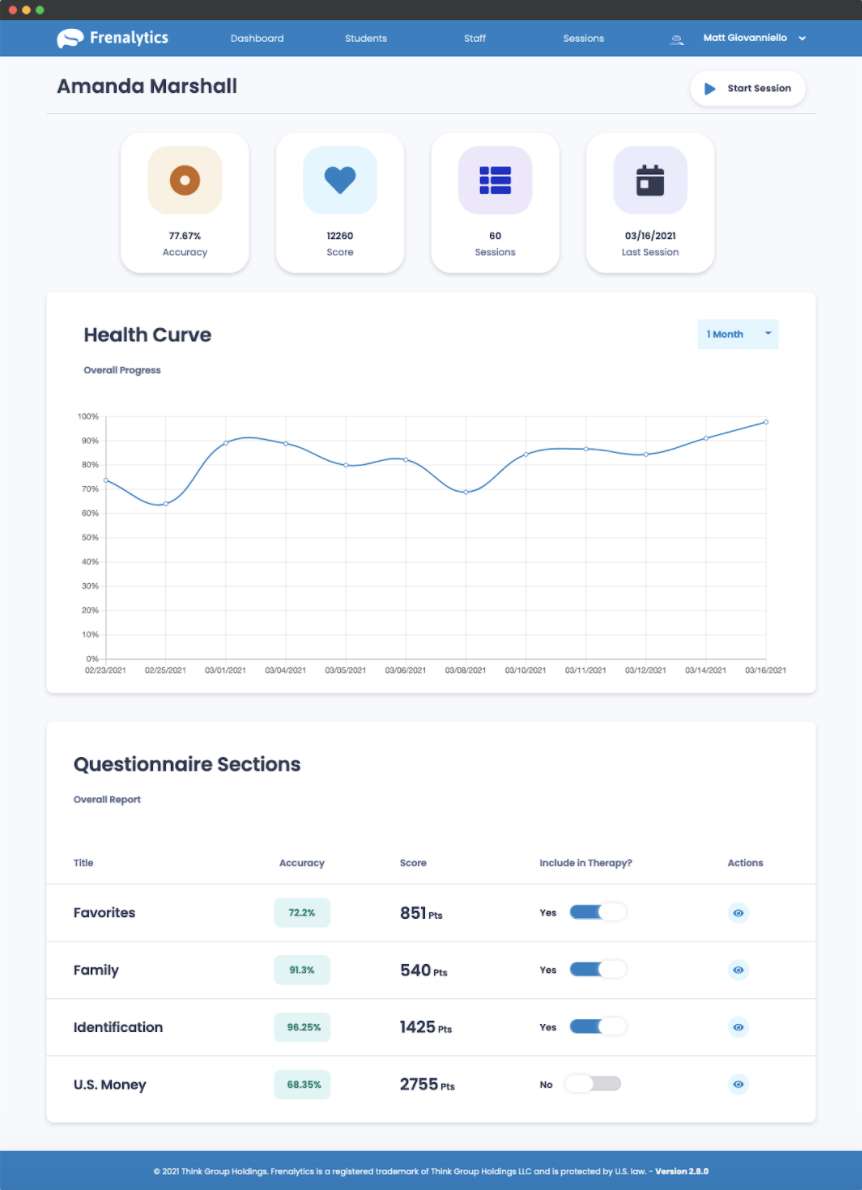by Kelley Morin | April 15, 2021
Individualized Education Programs
The Individualized Education Program (IEP) was introduced in 1975. Since then it has been used to improve learning for students with disabilities across the United States. The IEP is a very important component of learning for students with disabilities, parents, and their teachers. Under the law, the IEP ensures that students with disabilities are receiving proper and effective teaching instruction at school. Essentially the IEP is a roadmap and accountability tool that shows where the student is right now with their learning, where they are going, and what tools they will need to get there. More specifically the IEP is made up of several components including annual goals, progress tracking, description of services, duration of services, any testing adaptations, and plans for transition into higher levels of schooling. The IEP is a necessity for any special education teacher and requires a high level of attention and work to follow and maintain.
IEP in the Pandemic
The added challenges of online learning have affected how teachers can assist and evaluate students. The variability in learning in a hybrid model makes it difficult to develop a consistent routine as the mode of learning changes each day. Now a year into the pandemic, teachers, and schools across the country have developed ways to enhance learning online. For example, one teacher introduced a bitmoji classroom with brain breaks and calming activities. That being said, there is still more room to grow. It is apparent schools should invest in the infrastructure of online learning in order to accommodate each student’s learning and ensure they adhere to goals and procedures outlined in individual IEPs. Therefore, although schools have one year of online learning under their belt, there is still an opportunity to make learning better by investing in high-quality online tools. Teachers and schools have a commitment to students to provide an education that effectively meets their needs regardless of the mode of learning.

Credit: Riverside Insights
Data and IEPs
Teachers and parents know that having a thorough and comprehensive IEP is important to ensure that students are getting the best support they can in school. Some of the report can be completed through observation but there are a few areas that require real data like current state, progress monitoring and reviewing of goals. In progress tracking, teachers are asked to assess and report on student progress in a variety of topics. These can range from reading skills, vocabulary, and math to social and behavioral skills. Some of these skills can be difficult to measure while others are relatively easy to observe. For example, a teacher who is busy with a class full of students might not be able to precisely track how many times a student answers a specific question correctly. In years past, before technology became integrated with the classroom experience, teachers had to rely on their own memory and notes to complete the IEP to the best of their ability. However, incorporating accurate data not only increases the quality of reporting but also effectively communicates progress to the school and parents or guardians.
With the increased integration of technology in the classroom, special education teachers have a unique opportunity to provide data-driven instruction to maximize efforts toward student achievement. Feedback systems are incredibly important in the classroom. A feedback system is defined as a “cause-effect sequence where data (often in the form of an ‘event’) is responded to based on recognition of an outcome and that data is used to inform future decisions in similar or analogous situations”. In the Journal of School Leadership, researchers wrote, “feedback systems are essential for developing organizational capacity to learn from prior practices and to intentionally shape practice to achieve anticipated ends”. Evaluations and feedback utilize past behavior and performance to improve on in the future. This process affirms positive actions and helps formulate areas of improvement. An example of this could be check-in evaluations after each learning unit. Leveraging feedback systems in online learning can effectively improve how teachers build lesson plans and track student progress.
Most importantly, data-driven learning is beneficial for the student. The ability to assign a value to behavior can help make goals seem more tangible to the student, likely making it easier for them to address. Seeing successes and scaled improvement over time is motivating for students and teachers alike. Digital learning tools like Frenalytics demonstrate how students become more engaged when their learning outcomes are made easily available to teachers, students, and parents.
How Frenalytics can improve the IEP
Online learning has placed an overwhelming pressure on special education teachers to provide effective teaching in a very different context than usual. Integrating technology and data collection into lesson plans may seem difficult but digital learning tools like Frenalytics can ease the stress that many teachers are experiencing.
FrenalyticsEDU is a patented, web-based tool that provides highly personalized and interactive educational sessions for students with Autism, Down Syndrome, and other intellectual disabilities. With the switch to online learning, access to proper technology is not always a given. However, Frenalytics is accessible from a smartphone, computer, or tablet at any time- no special software required. FrenalyticsEDU runs learning sessions through an interactive, game-like interface, with built-in topics that range from reading comprehension and math to life skills (like sight words, hygiene, telling time) and conversational skills. In addition, the highly personalized nature of Frenalytics allows teachers to customize new sections to best fit the needs of each individual student. A special education teacher at Escondido High School who uses FrenalyticsEDU in her classroom introduced custom sections catered to her students’ needs. She explained, “they loved the new sections … and it’s so nice to have such a beneficial program during this unusual time of distance learning! My classroom uses it to learn our addresses, phone numbers, money values, sight words, and safety signs.”
Here’s a snapshot of our analytics dashboard:

FrenalyticsEDU uses deep data analytics to track details of students’ learning sessions. Frenalytics automatically stores how long each student takes to answer a question, how many questions they answer correctly, and their overall score for each session. This data is aggregated into an analytics chart for easy viewing by teachers. Having tangible data for each student creates opportunities to find strengths, areas for improvement, and can help inform future goals. Frenalytics’ data-driven solution can significantly improve a teacher’s ability to provide concrete data in IEPs for the school and more importantly families to track their students’ learning achievements.
Want to see how Frenalytics helps special needs students live more independent lives?
Click here to learn more, or give us a call at (516) 399-7170.
Try FrenalyticsEDU for free!
Kelley Morin is a senior at Boston College concentrating in Marketing and Management & Leadership. Kelley is passionate about special education and is really excited about the FrenalyticsEDU platform. Originally from Massachusetts, Kelley is an avid Boston sports fan and loves to play lacrosse.
Contact Kelley: kelley@frenalytics.com

